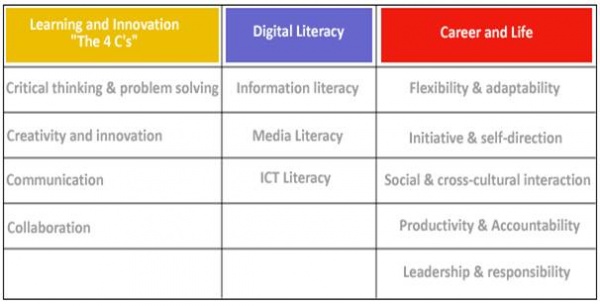Dimensions of openness in education/Why adopt OEP
Demand is increasing world-wide for higher education. Source: http://www.uis.unesco.org/Education/Documents/oecd-eag-2012-en.pdf As universities are faced with ever-increasing enrolment, class sizes are getting to be too big to adequately meet the needs of students. As well, tertiary education is in especially high demand in Sub-Saharan Affrica, where the university attendance average is 5%, as compared to a minimum of 50% in wealthy countries. Unfortunately, a large number of qualified students do not have access to higher education simply because brick-and-mortaruniversities cannot be built fast enough to keep pace with demand. The strong correlation between higer educationa and higher income is a major driver for university attendance worldwide. Source: http://ent.arp.harvard.edu/AfricaHigherEducation/
The Education for All movement aims to increase access to education for learners at all levels of education, including professionals and those wishing to enter the job market. Since education is a fundamental human right and an important factor in eliminating poverty, it is of great importance to rapidly increase access to education. We have OERs in abundance now. The challenge for increasing access to education is to implement policies for the creation and use of high-quality OERs, educational training, management of open education programs, technical support, offering access to technological resources, among other requirements. These policies are needed at the national and institutional levels (THIS BIT NEEDS WORK). In other words, the solution for increasing access to education is to increase the implementation of Open Educational Practices.
Taking another perspective,OEPs are necessary for making the most of OER use which has the potential to significantly change the way that courses are developed and delivered. More to the point, free digital resources can be used to help students to learn 21st century skills. These skills are expected to be required for success in the knowledge-based global economy. In this context, professionals will need to know how to do research effectively, interpret content using critical thinking skills, communicate and collaborate with others who may work at a distance, among other skills. Many of the 21st century skills require the use of technology. Thus, the use of digital content and tools helps to develop needed skills throughout a learner's academic and professional career. More information about 21st century skills is available Here: http://www.p21.org/
By using OER, instructors have the opportunity to develop courses without each time having to re-invent the wheel, but rather take advantage of remixing, that is, building on OERs developed by other instructors. Taking another view, OER use in courses can involve a perspective on learning that is different from that of conventional programs where students work largely as individuals and the course is teacher-centered. When OERs are used in ways that favour student-student interactions, they help learners to develop skills needed to succeed in a knowledge-based society. Some such skills are "self-direction and creativity, critical thinking and problem-solving skills, collaborative team-work and communication skills." Source: http://www.olcos.org/cms/upload/docs/olcos_roadmap.pdf
Some universities have fully embraced and implemented OEPs, some have integrated some practices and policies regarding the use of OERs, and yet others have no structures in place at all with regards to open education. This mini-course serves to sensitize education stakeholders about OEPs so that they can decide whether they want to implement these practices, and it is intended to expose the different issues of OEPs that need to be addressed with a view to offering open education.
